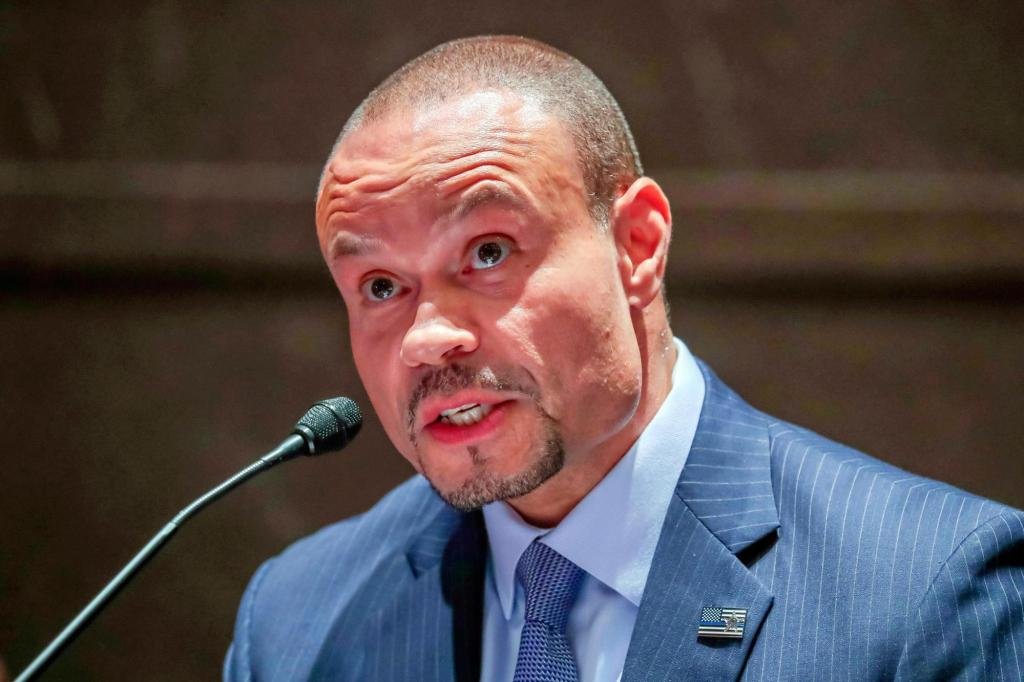The Fallout from the Epstein Investigation: A Deep Dive into DOJ and FBI Tensions
The recent decision by the Justice Department (DOJ) and the FBI to withhold records from the Jeffrey Epstein sex trafficking investigation has ignited controversy among far-right conservatives and President Trump’s supporters. This incident highlights the growing rift between the DOJ and FBI as they grapple with a heightened demand for transparency and accountability. As conspiracy theories flourished and expectations soared, officials found themselves at the center of a storm, struggling to appease a vocal base that now feels let down and frustrated by the lack of new revelations.
Tensions came to a head when Attorney General Pam Bondi and FBI Deputy Director Dan Bongino engaged in a contentious exchange at the White House. Their disagreement stemmed from the DOJ’s revelation that a highly anticipated document — rumored to be a “client list” — never existed. This admission led to a two-page statement from the department stating that no further records from Epstein’s investigation would be disclosed. For many Trump supporters, this was a stark reminder of the ongoing “deep state” narrative that has permeated political discussions surrounding the investigation.
The fallout from this situation has raised critical questions about the credibility of the DOJ and the FBI. Both organizations had previously suggested that there were hidden documents and evidence yet to be disclosed, which piqued the interest of right-wing commentators and influencers. However, when these disclosures failed to meet expectations, it only fueled the conspiracy theories that the administration has long sought to debunk. The Epstein case has thus become a battleground for conflicting narratives surrounding transparency and governance, illustrating the pitfalls of failing to deliver on public promises.
Adding to this complexity is the fact that the DOJ had previously touted a substantial amount of material that was thought to be available for public release, only for a recent memo to declare otherwise. The memo mentioned that much of the material in their possession had been placed under seal to protect victims and could not be disclosed. Critics argue that this lack of transparency has compounded feelings of distrust among those who believed the promises made by officials. Addressing these concerns is crucial for the DOJ and FBI if they aim to rebuild trust with both the public and the political factions that have rallied behind them.
The discord between key figures within the DOJ and FBI raises another layer of scrutiny regarding leadership dynamics. Reports surfaced that Deputy Attorney General Todd Blanche, FBI Director Kash Patel, and Bondi had issued statements countering claims of a disconnect within the agency’s ranks. Yet, rumors surrounding Bongino’s contemplation of resignation have fueled further speculation about internal rifts. The silence from Bongino during this tumultuous period only ignites curiosity and concern about the state of leadership within the DOJ and FBI.
Efforts to quell tensions and reestablish a unified front were evident in comments from officials who insisted that their team remains cohesive and focused on delivering justice. White House spokesman Harrison Fields asserted that the administration has indeed assembled a competent law enforcement team dedicated to the American public. However, the contrasting viewpoints and frustrations from far-right activists like Laura Loomer indicate that many Trump supporters still feel disillusioned by the lack of transparency, revealing the challenges the administration faces in harmonizing its message.
In conclusion, the consequences of the DOJ and FBI’s decision to withhold records from the Epstein investigation reflect broader issues of credibility and transparency in government. The discourse surrounding this controversy reveals how deeply embedded conspiracy theories have become in the political landscape, complicating efforts for these institutions to regain public trust. As the fallout continues, it remains critical for the DOJ and FBI to navigate these tensions carefully in order to ensure accountability and foster renewed confidence in their efforts to protect victims and uphold justice.
This article serves as a comprehensive summary of the current events surrounding the Epstein case involving the DOJ and FBI, shedding light on the underlying tensions and challenges faced by these institutions.









